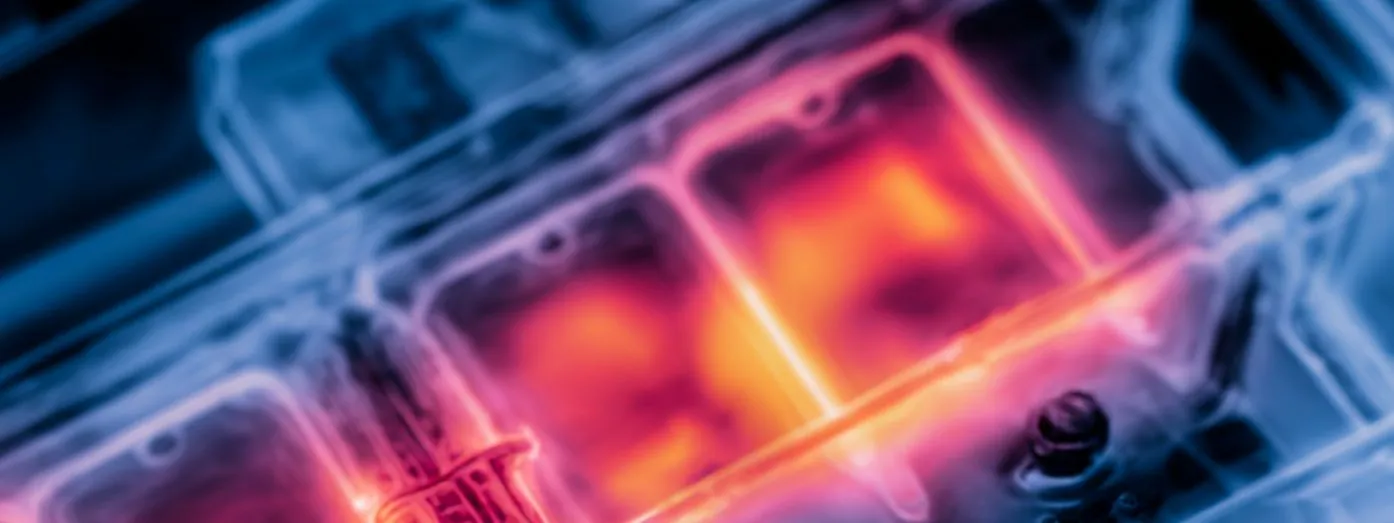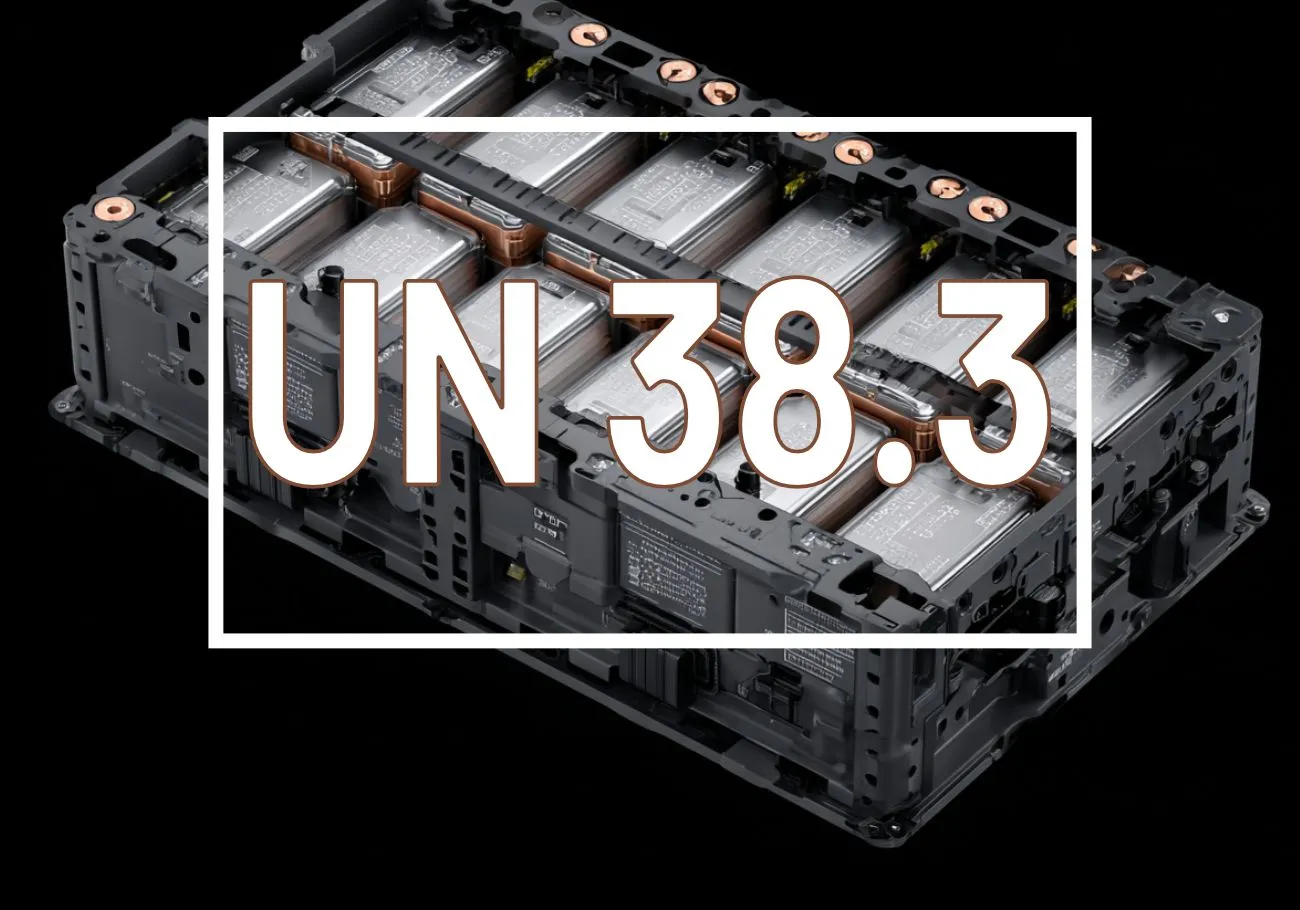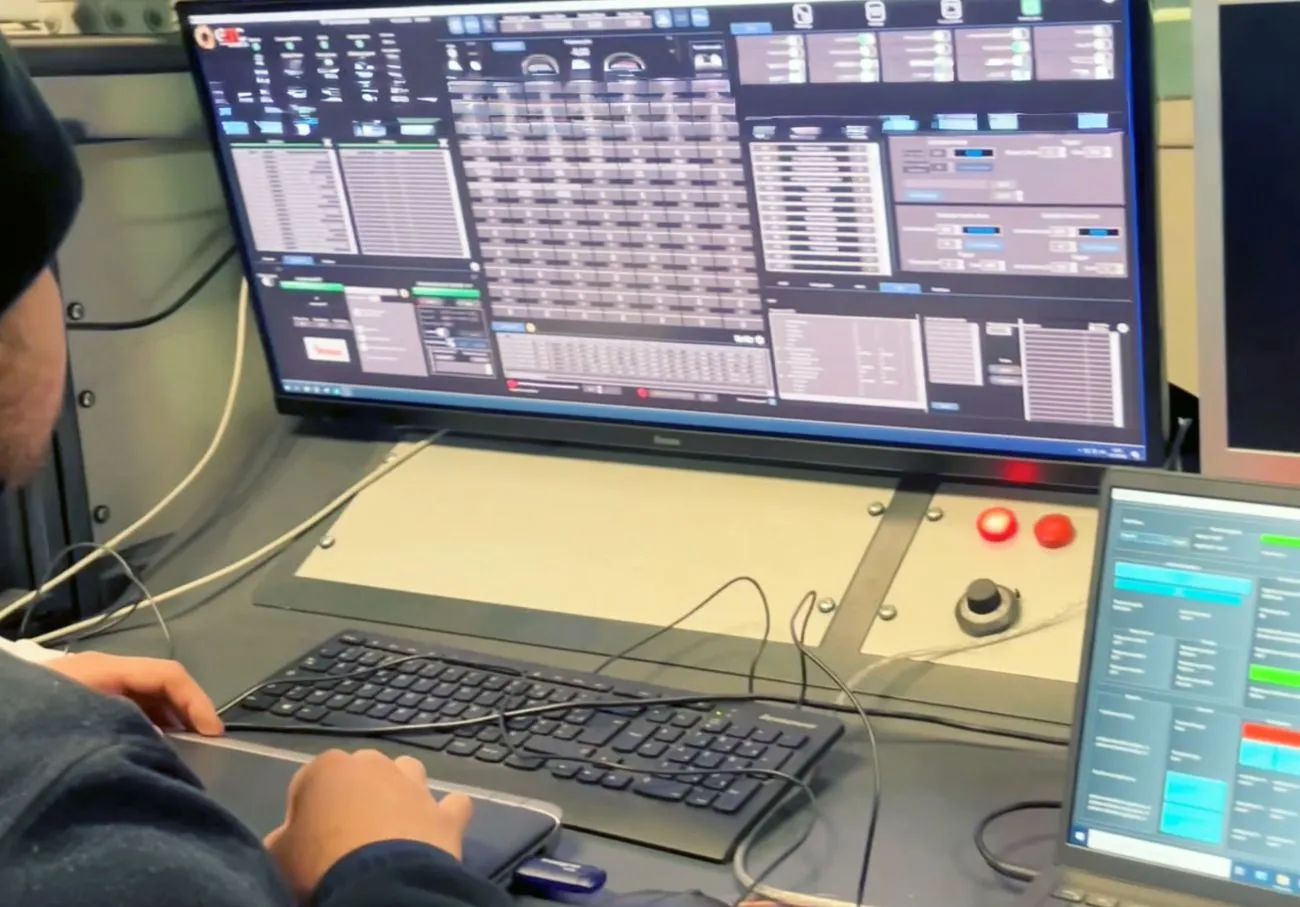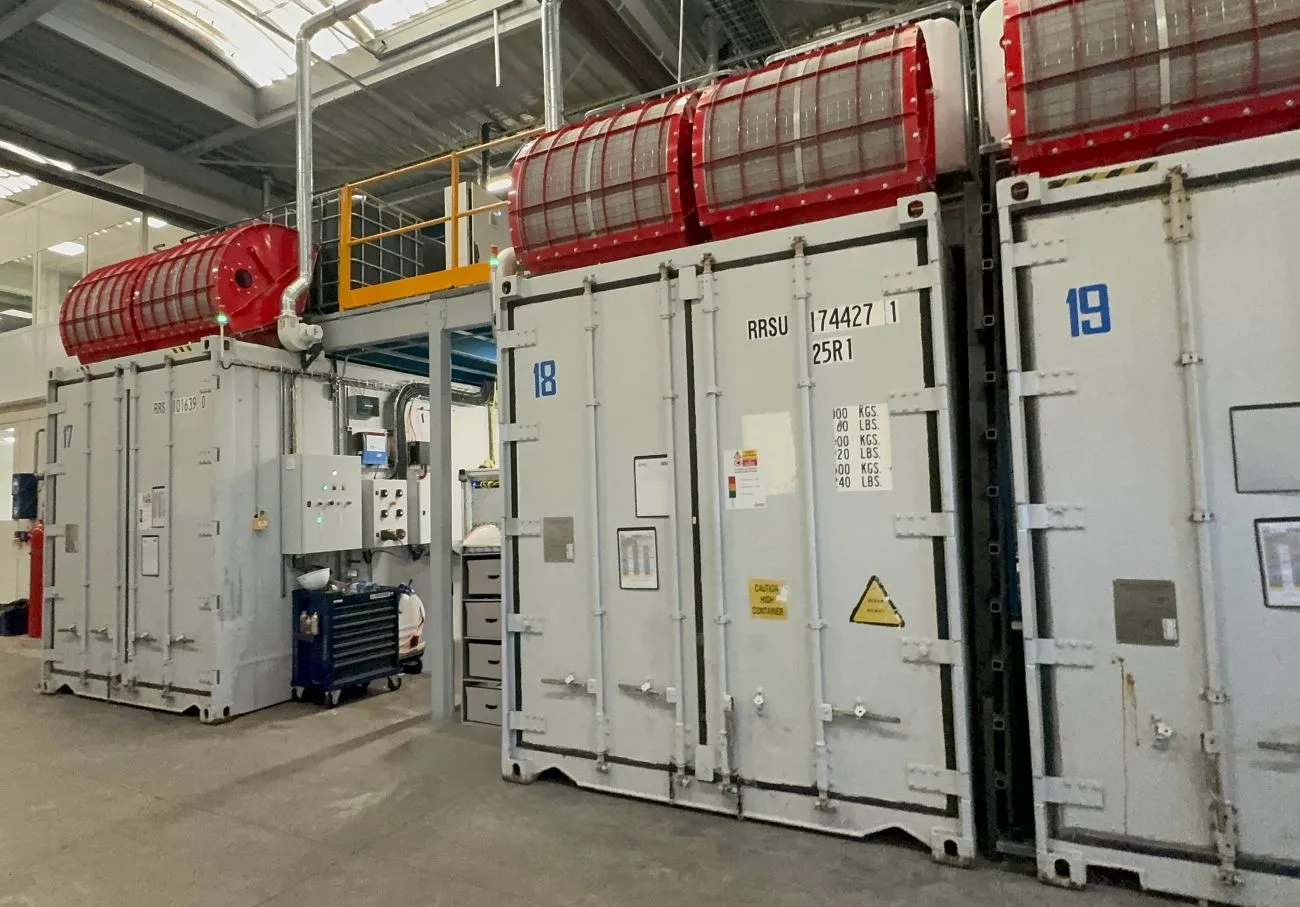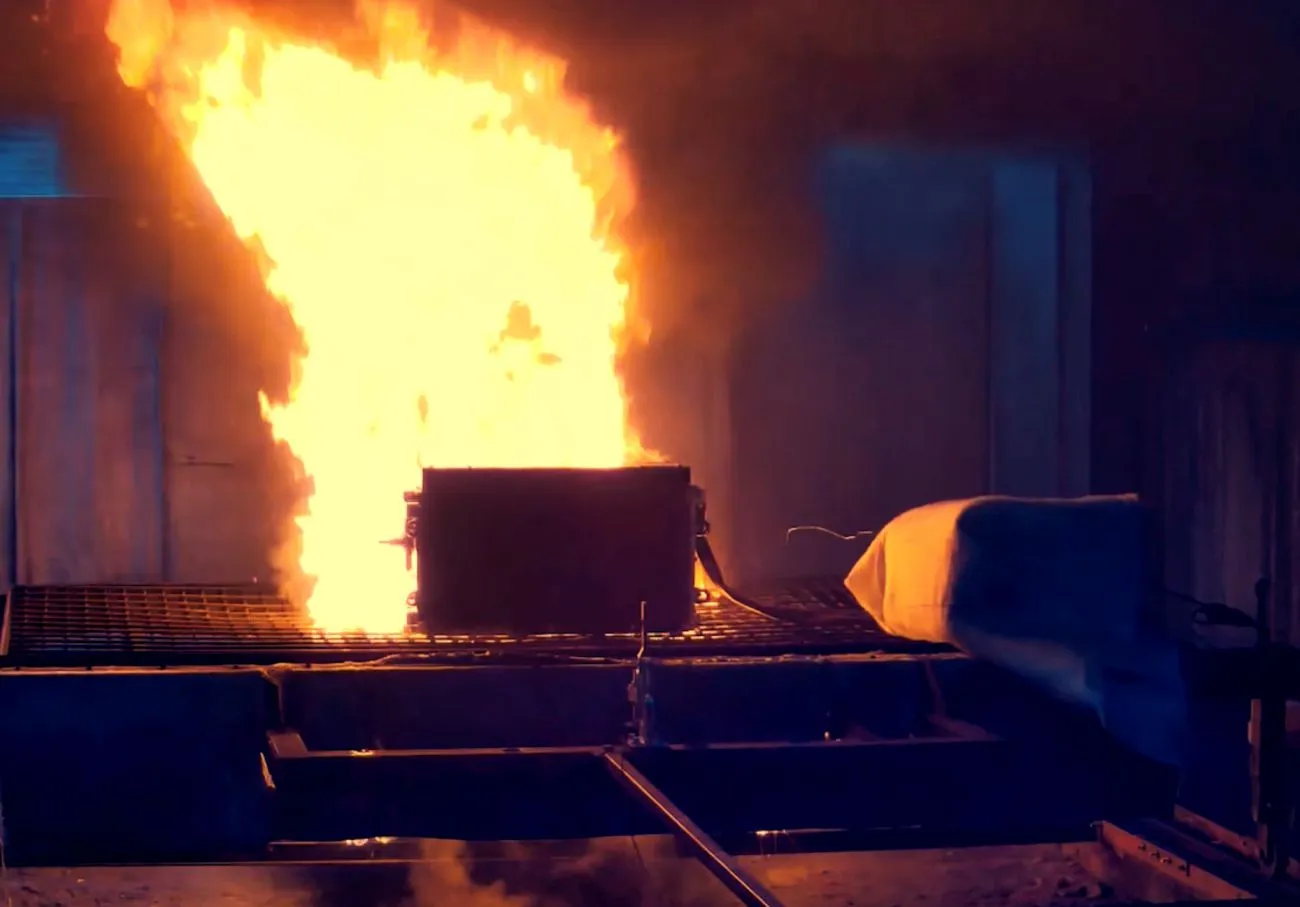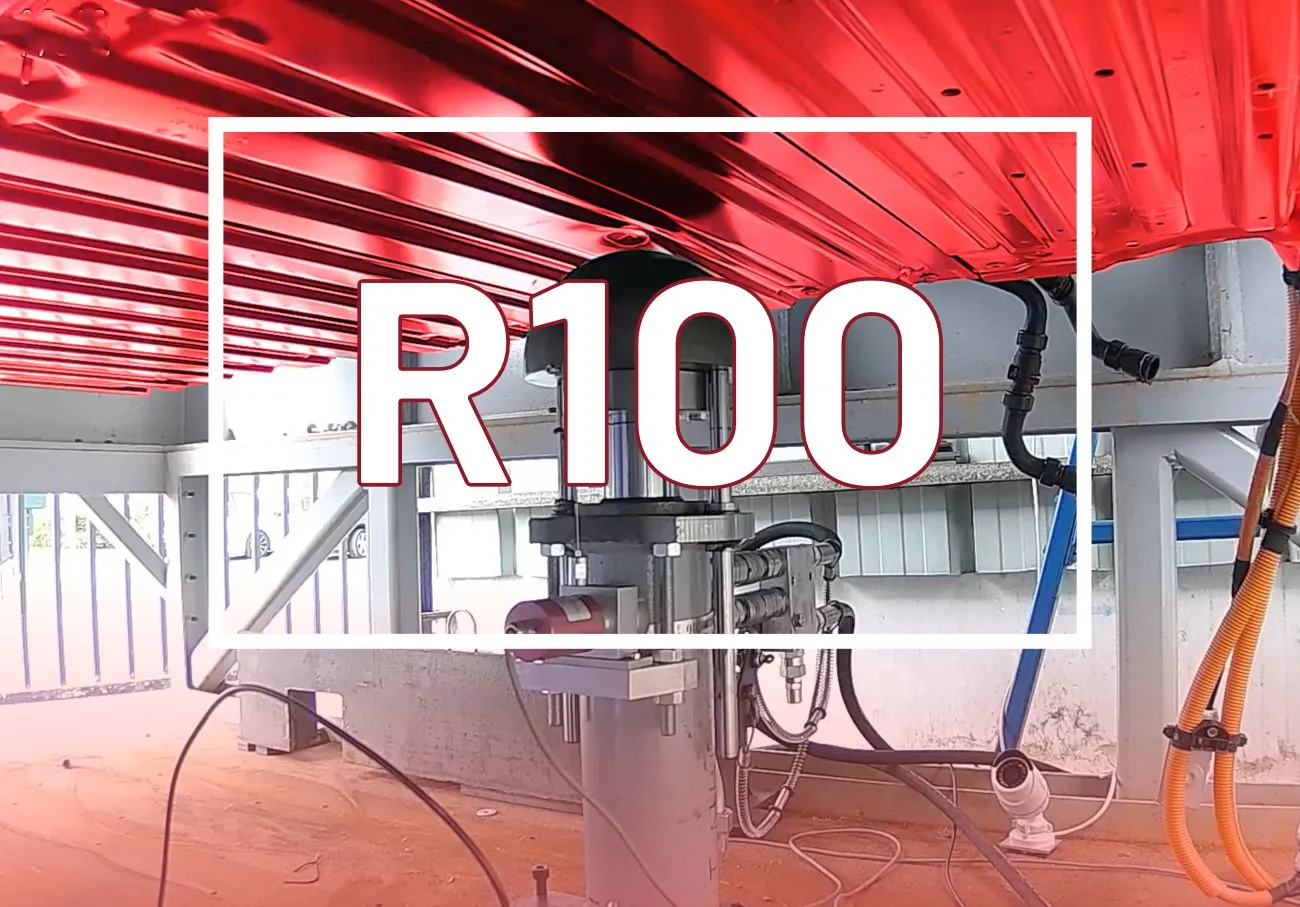Thermal runaway tests on lithium-ion batteries and other technologies
Benefit from the Emitech Group's expertise in battery testing
Assess your batteries' resistance to thermal runaway to guarantee their safety and regulatory compliance
Thermal runaway is one of the most feared phenomena in the validation of lithium-ion batteries, but not only, particularly in the electric mobility sector. It occurs when a cell exceeds a certain critical temperature threshold, leading to chemical chain reactions releasing intense heat, flammable gases, even flames and explosions.
The Emitech Group supports you in the design, development and validation of your REESS batteries, by carrying out representative and standardised thermal runaway tests.
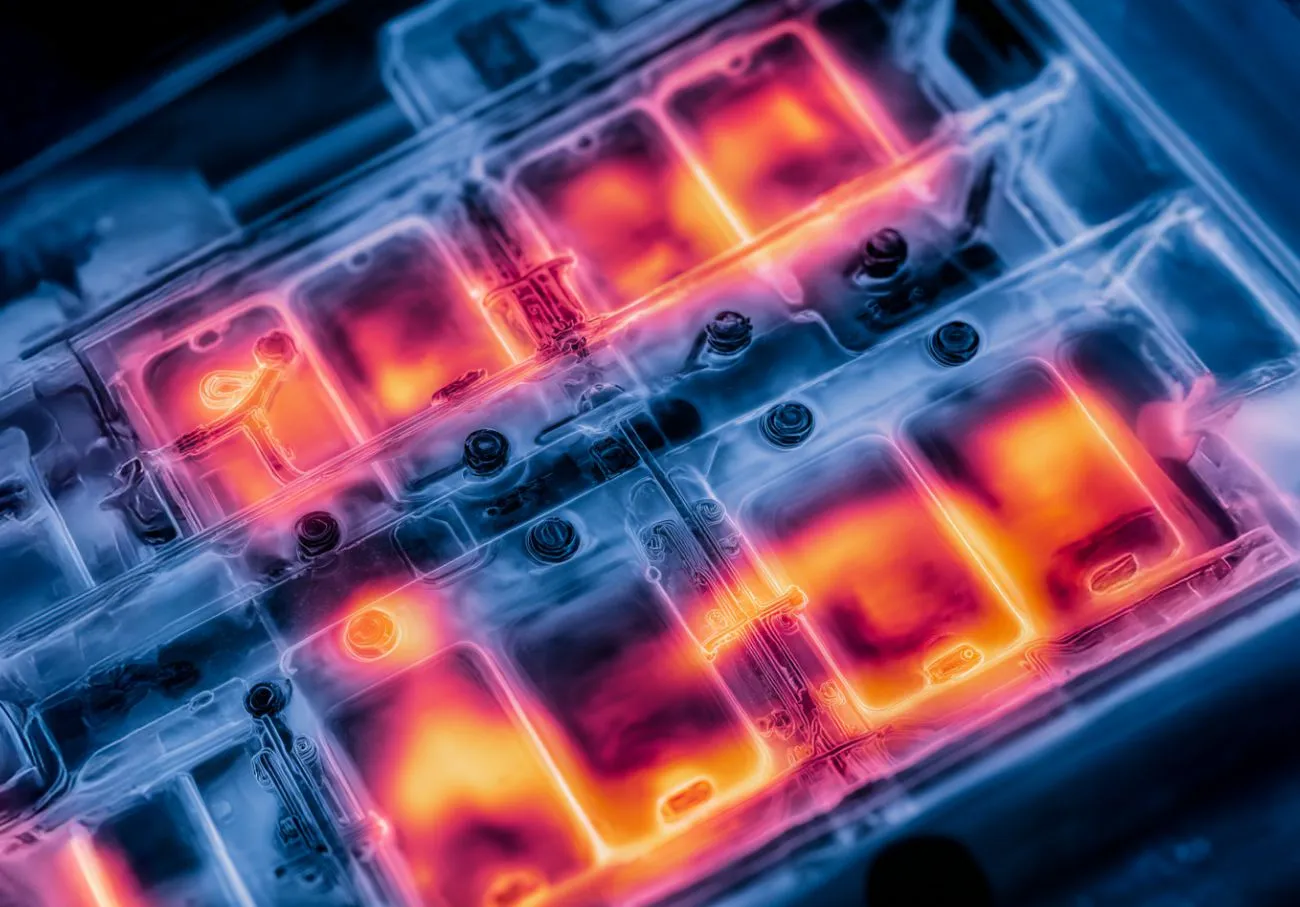
Why test for thermal runaway?
Ensuring the safety of your products and preventing risks
- Identify critical failure scenarios: overload, internal short-circuit, perforation, manufacturing defect, etc
- Check for no thermal propagation to other cells or modules
- Reduce the risk of fire or explosion
Demonstrate the regulatory compliance of your batteries
- Meet the requirements of ECE R100 Rev.3 (articles 6.13, 6.14, 6.15)
- Test to international standards: UL 9540A, ISO 12405, IEC 62660-2, GB 38031 (China)
- Prepare CE marking, E marking and other sectoral approvals (automotive, aeronautical, stationary, etc.)
Validate your technical solutions and innovations
- Characterising the effects of a runaway: delay before propagation, temperatures reached, nature of the gases released
- Test active or passive countermeasures: sensors, warning devices, ventilation, thermal protection, etc
- Compare several pack designs, chemistries or containment strategies
Our thermal runaway test facilities
How we initiate thermal runaways
- Thermal pad heating – automotive standard (IEC/SAE)
- Simulated internal short circuit
- Nail penetration – UL/SAE/GB method
Testing in a dedicated enclosure
- Secure volume with instrumented cell
- Synchronised infrared (IR) cameras + HD videos (x4)
- Acquisition on 96 isolated 1000V channels, temperature, pressure and flame sensors
- Optical + electrical detection of the start of runaway
Analysis of gases emitted (optional)
- Gas analyser: H2, CO, CO2, NOx, SO2, CxHy
- Colorimetric tubes: HF, HCN, HBr, H2S
Related tests
- Coolant leakage (water/glycol) with rollover simulation
- Liquid pollution (immersion, humidity, dust)
Talk to our thermal runaway test experts
Standards covered and benchmarks included in our tests
- UNECE R100 Rev.3 - Annex 9E (fire test, evacuation time)
- UL 9540 / UL 9540A: thermal propagation assessment (stationary, building)
- IEC 62660-2: cell abuse tests (puncture, short-circuit, heating)
- ISO 12405-3: pack-level safety tests
- GB 38031 (China): 5-minute no-flame test after packaging
- SAE J2464 / J2929: abuse tests, vehicle safety assessment
Our thermal runaway services cover a wide range of sectors
Our tests are aimed at:
- Lithium-ion battery manufacturers (cells, modules, packs)
- Automotive manufacturers and equipment suppliers (R100, R136)
- Stationary system integrators (UL 9540A)
- Defence, space, medical and aeronautics sectors
- Developers of innovative batteries (solid, sodium-ion, etc.)
Some examples of customer projects:
- Thermal runaway tests on electric vehicle batteries (BEV, PHEV, LCV)
- Evaluation of thermal/gas shutdown devices/circuit breakers in the event of an incident
- Development of non-propagating battery packs for the automotive and aeronautical sectors
- Comparative analysis of different Li-ion chemistries (NMC, LFP, LCO, etc.)
Benefit from the advantages of the Emitech Group
- Collaboration with notified authorities (R100 certification)
- Cross-disciplinary expertise: climatic, vibration, fire, impact and watertightness testing
- Development of customised tests according to your product needs
Related Services
Needs
Discover a selection of additional resources that explore topics related to this page including regulatory contexts, technical articles, and specific areas of expertise. These materials provide further insight to help you better understand the key challenges and available solutions.
Contact us for a quote
